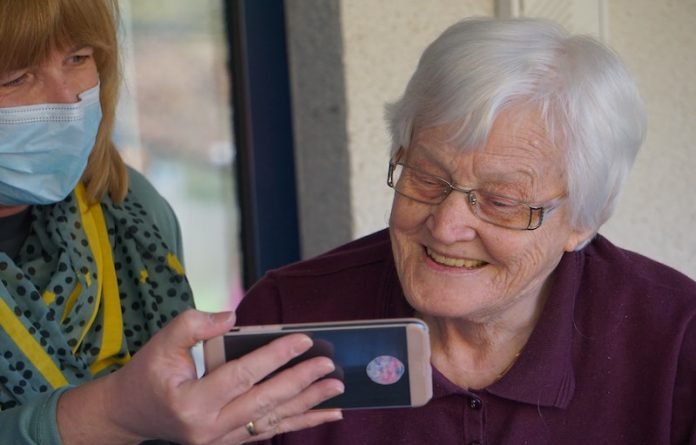
In a study from Boston University, scientists found folks who were treated with transcranial alternating current stimulation on the brain for four days in a row showed greater improvements in their memory.
The effect seemed to last for weeks.
In the study, the team tested 150 adults aged 65 to 88 who received treatment targeting their short-term memory, long-term memory, or a placebo procedure.
Most were experiencing normal age-related declines in memory. No one in the study had been diagnosed with Alzheimer’s disease.
Participants in the active treatment groups wore a shower cap with embedded electrodes that were hooked up to a brain stimulation device that emits weak electrical currents via the electrodes.
Each session lasted 20 minutes, and old people were asked to listen to and then immediately recall five lists of 20 words during treatment.
The team says these electrical currents stimulate brain areas that have lost their rhythm.
Cells that fire together wire together, and thus carry information forward in time [improving memory.
Firing together highlights the importance of timing in the brain for successful memory and neuroplasticity, and the brain stimulation protocol is designed to modify brain activity timing like a conductor of a symphony organizes the sounds of the different instruments.
The team found people who received the brain stimulation recalled more words with each passing day, and the benefits lasted a month. They improved by 50% to 65% roughly on day four.
Interestingly, people with the lowest cognitive performance, when the study started, showed the greatest benefits from the brain stimulation.
The degree of memory improvements during treatment predicted benefits one month out, the study showed. More research is needed to determine if these gains last longer.
The team says the treatment can be customized to specific memory shortfalls.
The good news is that there aren’t many side effects. People may experience itching and tingling at the beginning and end of treatment.
Studies are also looking at the use of this technology for treating schizophrenia, Alzheimer’s disease, and obsessive-compulsive disorder. It may also help boost memory and performance in people without any known deficits.
If you care about Alzheimer’s disease, please read studies about new light treatment that may slow down Alzheimer’s disease, and a new therapy for Alzheimer’s disease, and results showing this antibiotic drug may effectively treat common dementia.
The study was conducted by Robert Reinhart et al and published in Nature Neuroscience.
Copyright © 2022 Knowridge Science Report. All rights reserved.



